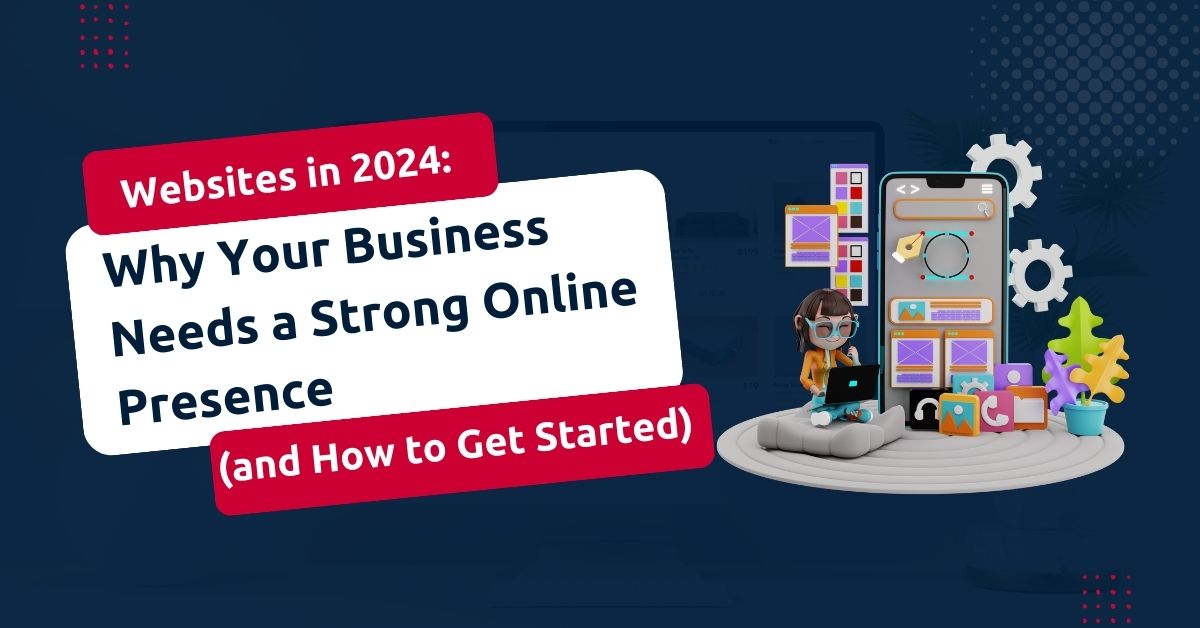The current digital era demands constant revamping in terms of tools and techniques that are utilized to build an online presence to change the way businesses interact with their customers virtually. Out of all the mediums available for building an online presence, an effective website can be nominated as the top digital medium that can make or break a brand’s online reputation.
At present, there are approximately 2 billion active websites on the internet with an average of 5.44 billion users that actively interact online, highlighting the need to stand out to attract the right pool of target audience towards your brand. Google is the top choice globally for searches with over 276 million unique visits every month. On the other hand, Amazon is ruling the market in e-commerce sites with a minimum of 2.6 billion visits every month.
Do you wish to create a unique website for your business? Keep reading to know the right way to begin.
Before we jump into the top website development platforms today, let us quickly take a look at some interesting facts for website development and the reasons why visitors leave a website midway below.
Ten Important Facts
First Impressions Matter: People form an opinion about your website in just 0.05 seconds. This means a well-designed website is crucial for establishing trust and professionalism.
Mobile First: Over 60% of web traffic comes from mobile devices. Ensure your website has a responsive design that looks great and functions flawlessly on all screen sizes.
Speed is Key: A one-second delay in page load time can decrease customer satisfaction by 16%. Prioritize website speed optimization to keep visitors engaged.
Content is King: 47% of visitors look at your products/services page first. Make sure your website has clear, concise, and valuable content that informs and engages your audience.
Call to Action: 70% of small businesses lack a clear call to action (CTA) on their website. Tell visitors what you want them to do next, whether it’s contacting you, making a purchase, or subscribing to your newsletter.
Navigation Matters: Easy and intuitive navigation is essential. Visitors shouldn’t struggle to find the information they need.
Security First: Customers expect a secure online experience. Ensure your website has proper security measures in place to protect user data.
SEO Matters: Think about search engine optimization (SEO) during website development. This will help potential customers find your website organically through search engines.
Analytics Advantage: Track website traffic and user behavior with analytics tools. This data will help you understand how visitors interact with your website and identify areas for improvement.
Mobile Conversions: 50% of smartphone users prefer mobile sites over apps. Optimize your website for mobile conversions to capture sales and leads directly through your website.
Why Do Visitors Leave Your Website?
There are many reasons for which a visitor would want to leave a site without performing the desired action. You are not in control for some of the reasons, but are in control for the following:
Performance (speed, security):
This refers to the technical foundation of your website and how well it delivers a smooth experience.
Speed: Imagine waiting for a webpage to load forever. Website speed is crucial. Studies show even a one-second delay can hurt conversion rates. Optimizing images, code, and server response time are all essential for a fast-loading website.
Security: Visitors trust your website with their information. Having strong security measures like SSL certificates protects user data and reassures visitors they’re not entering a risky online environment.
Usability (navigation, mobile-friendliness):
This is all about how easy it is for visitors to find what they need and complete desired actions on your website.
Navigation: Think of your website’s navigation as a roadmap. A clear and intuitive navigation menu with logical categories helps visitors find the information they seek quickly and efficiently.
Mobile-friendliness: With over half of web traffic coming from mobile devices, a website that doesn’t adapt to smaller screens is a major turn-off. Ensure your website has a responsive design that adjusts for optimal viewing and functionality on all devices.
Design (aesthetics, outdated look):
First impressions matter in the digital world, and your website’s design plays a big role.
Aesthetics: Visual appeal is important. A clean, modern design with high-quality visuals creates a positive user experience. Cluttered layouts, excessive animations, or outdated graphics can feel unprofessional and drive visitors away.
Outdated Look: Trends in web design evolve. A website that looks like it’s from the early 2000s can appear dated and untrustworthy. Keeping your website’s design current reflects professionalism and fosters trust with visitors.
Content (relevance, clarity, value):
Content is the heart of your website. It’s what informs, engages, and ultimately converts visitors.
Relevance: Your website content should be directly relevant to your target audience and the purpose of your website. An e-commerce store wouldn’t benefit from having blog posts about astrophysics.
Clarity: Keep your content clear, concise, and easy to understand. Avoid jargon and technical terms that might confuse your visitors.
Value: The content on your website should offer something valuable to the visitor. This could be informative blog posts, helpful product descriptions, or engaging videos. Content that doesn’t provide value won’t keep visitors interested.
Now that we have ample information regarding the kind of needs of the current population when it comes to a brand website, let us discuss in detail the top website development platforms in 2024 below.
Top 3 Website Development Platforms in 2024 (Does not include ecommerce)
Making a website has never been easier with the latest platforms available that allow you to build it as per your requirements without much hassle. The right kind of website should take your customers through a journey that motivates them to interact with your brand and close purchase. The best characteristics to look for in any website development platform include easy customizations and quick adoption.
Let us now understand the top website development platforms in 2024 that can help you with the same.
#1 WordPress
A global favorite, WordPress currently is a power base for over 43% of the websites available around the world. It is a complete site-building package that allows you to develop your website and also acts as a complete content management system. You do not need any prior experience to make a website on this platform and the top features include:
- User-friendly
- Easy to install create and modify free of cost
- Top features available for website creation
- WordPress directory with multiple plugins available
- High mobile responsiveness
Pros: User-friendly, vast library of plugins and themes for customization, strong community support, good for content-heavy websites (blogs, portfolios).
Cons: Requires some maintenance (updates, backups), security vulnerabilities if not managed properly.
#2 Wix
Wix has been a popular choice for many years now. Especially for first-timers or small businesses, Wix has proved its efficiency and effectiveness time and again. It has multiple in-built tools that help you understand your needs better before you begin customization for your website. The top features include the following:
- AI-assisted model
- Helps understand what you might need
- Wide selection of unique themes to choose from
- User-friendly
- Great revenue stream
#3 Squarespace
Many experts believe Squarespace to be an all-in-one management system for content and not just a website building platform. It offers a variety of professional-looking templates for you to begin with and allows you to explore as many customizations as possible as per your needs. The top features include:
- Mobile friendly
- Affordable
- SSL is included
- Built-in features for SEO
- Integration of social accounts on the website available
Pros: Known for beautiful, template-driven websites, user-friendly interface, good for creative industries like photography or design portfolios.
Cons: Limited design flexibility compared to Webflow, can be more expensive for complex websites.
Final Thoughts
In conclusion, it is important to reinstate the need for an active website for your brand or personal branding today, given the increasing inclination to complete digitization approaching soon. You do not necessarily have to complete a degree in coding and development to be able to build yourself a successful website. The only requirements, however, include knowledge of what you want and what your target audience interacts with, the right tools and platforms to use, market research, and patience to see positive results. Make use of the above-mentioned readily available platforms for website development and give your brand an edge over the competitors. Just remember, the key focus should be customer mindset.




